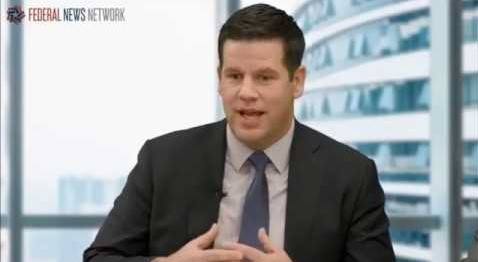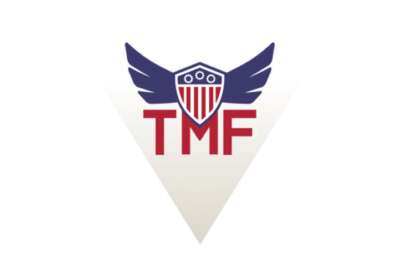AI ‘expressions of interest’ flood into TMF Board
Harrison Smith, a member of the Technology Modernization Fund board, said the streamlined proposal process has helped agencies submit more AI proposals.
The Technology Modernization Fund Board’s $18 million investment in the State Department’s generative artificial intelligence program is just scratching the surface.
The board is expecting a rush of proposals for AI projects, particularly those that are under $6 million dollars or under 18 months in total length.
Harrison Smith, a member of the Technology Modernization Fund board, said since the call went out to agencies earlier this year for AI proposals or ideas, the board has received about 100 “expressions of interest.”

“The one piece that’s a little, a little different there is that the board has allowed for streamlined expressions of interest from agencies. We have to work through the process, reach out and talk to the entities,” Smith said in an interview with Federal News Network. “But honestly, the administration has been very clear. We have an obligation in the TMF and, as part of that, we have to the harness the power of artificial intelligence for good while protecting people from its risks. I believe strongly that the TMF is one of the ways to do that.”
The board’s streamlined expressions of interest approach, as well as the changes to the repayment structure, has caused a 10-fold increase in the number of proposals agencies submitted to the board.
Smith said part of the reason is the $1 billion in funding the TMF received from the American Rescue Plan Act, but another part is because the board and program management office has done more to educate and help agencies.
New executive director for TMF office
To that end, the General Services Administration named Larry Bafundo as the permanent executive director of the TMF PMO yesterday.
Katy Kale, GSA’s deputy administrator, announced his promotion to staff in an email that highlighted his “thoughtful and strategic leadership that has set up the TMF team for future success.”
Bafundo returned to GSA in January to be deputy executive director and acting executive director of the TMF program management office, replacing Raylene Yung. Kale said in the email obtained by Federal News Network, that Bafundo has provided. The TMF Board has made nine awards worth more than $168 million since January.
The latest awards went to the Federal Election Commission for $8.8 million to modernize its FECFile applications, which is running on software from 1997, the Interior Department’s Bureau of Indian Education for $5.86 million to modernize the websites and other online tools for BIE-funded schools in Tribal communities, and to the Energy Department for $17 million to modernize its human resources IT systems by moving to a software-as-a-service platform.
While none of these three awards focus on AI, the board expects to continue to review and award proposals seeking to implement the emerging technology.
Educating agencies on AI proposals
That is why State’s award in May is expected to be the first of several.
“The TMF call for AI and GenAI proposals, specifically calls out mission enabling approaches. This idea of we want to be able to test in certain areas to understand what might actually work, but if you can get to actual use cases that are helpful, like in the Department of State’s instance, it’s a great thing. It really drives the mission and enabling aspect of technology,” Smith said. “Everyone likes that flashy tool, but one that actually helps the Department of State actually just go through and operate its more than 270 diplomatic posts worldwide where there is a ton of data that comes in is really the question that the proposal answers. How is the Department of State going to be able to empower its global staff to work faster and easier, and with better information?”
One way the board is trying to refine agency proposals, and especially for those in the AI area, is through holding “office hours.”
Smith said agencies submit an “expression of interest,” which is an email about how they want to use the capabilities.
“Then you have an opportunity to talk to the TMF PMO. That’s an area where the board and the PMO have really started to lean in on because those conversations about ‘Hey, could you make it look like this?’ or ‘Hey, what about that?’ and ‘We need this type of repayment.’ Those have reinforced what we are trying to do,” he said. “I personally have spent a good amount of time talking to folks about how are you going to make this work, what are your procurement challenges, is this an existing procurement or are you going to try to do a new one? How are you going to engage with industry to make sure you’ve got the best outcomes? There’s a lot there already but we’ve really continued to lean into that because it’s shown a lot of benefits based on our feedback from the agencies.”
Copyright © 2024 Federal News Network. All rights reserved. This website is not intended for users located within the European Economic Area.
Jason Miller is executive editor of Federal News Network and directs news coverage on the people, policy and programs of the federal government.
Follow @jmillerWFED






